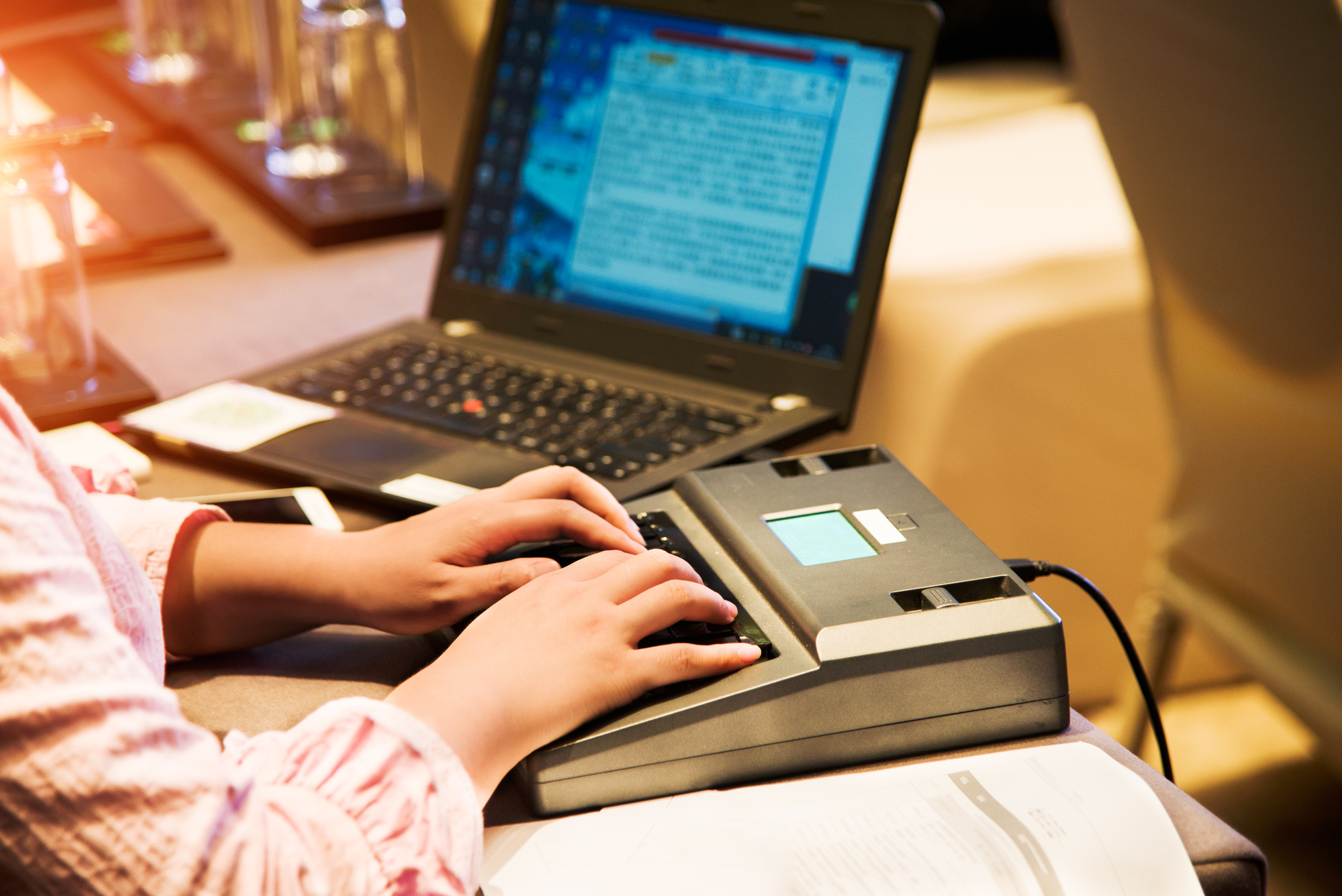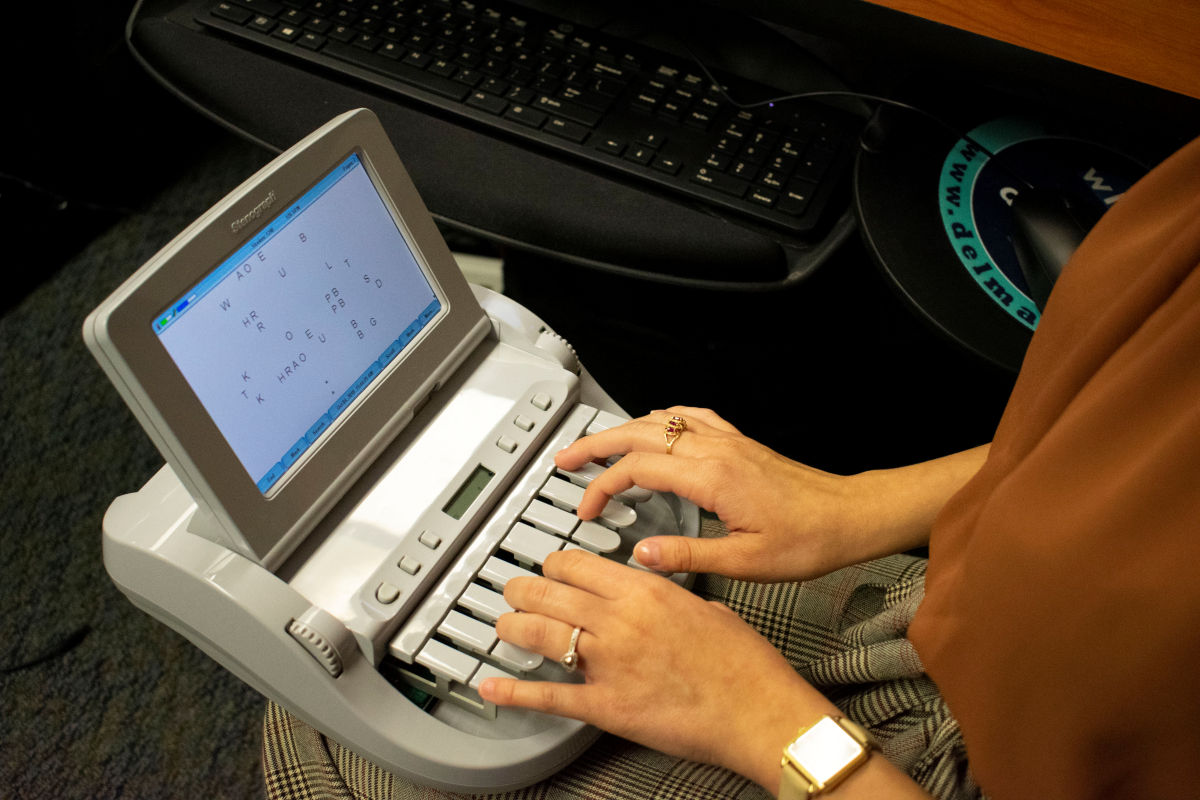The Ultimate Guide to court reporting for Legal Professionals
The Ultimate Guide to court reporting for Legal Professionals
Blog Article
Understanding the Vital Function of Court Reporting in Legal Process
Court coverage is typically neglected, yet it's important in lawful process. You might not understand just how stenotype reporter guarantee every word talked is tape-recorded accurately, affecting choices made by judges and juries. Their abilities and innovation play a substantial role in preserving the integrity of lawful documents. But what exactly does the process entail, and just how has it advanced with time? Let's explore the fundamental features of court coverage and its importance in the lawful landscape.
The History of Court Reporting
Court coverage has an abundant background that dates back to ancient worlds, where scribes used numerous approaches to record talked words. By the 16th century, contemporary shorthand systems began to take form, allowing court reporters to generate exact transcripts effectively.
Today, court press reporters play a considerable role in legal process, guaranteeing that every word spoken in the court is accurately documented. Comprehending this background highlights the relevance of court coverage in maintaining a reasonable legal system.
The Skills Needed for Court Reporters
As a stenotype reporter, you require solid keying abilities to stay on top of the hectic dialogue of lawful proceedings. Your capability to listen diligently is simply as vital, making sure every word is recorded precisely. Mastering these abilities is key to delivering exact and trustworthy records.
Skilled Typing Abilities

Strong Listening Skills
Solid listening abilities are crucial for court press reporters, as they must precisely capture talked words in real time. This ability assists you distinguish in between audio speakers, understand lawful lingo, and adhere to complicated conversations. Inevitably, solid paying attention abilities make you a vital possession in lawful proceedings, ensuring clarity and accuracy in the court document.
The Technology Behind Court Coverage
In the domain name of legal procedures, technology plays a vital duty in improving the precision and performance of court reporting. You're likely acquainted with the standard stenotype device, yet modern-day court reporters currently use advanced software that integrates with these machines, enabling real-time transcription. This indicates you can have immediate accessibility to the transcript as the procedures unfold.
Digital audio recording is one more technological innovation that's acquiring grip. It records every talked word, assuring absolutely nothing is missed out on. Some press reporters use voice recognition software program, which can help streamline the transcription process, though it still calls for human oversight for accuracy.
Furthermore, cloud-based storage permits easy accessibility and sharing of transcripts, improving collaboration among legal teams. By leveraging these technologies, court reporters can give high-quality, prompt documents that are crucial for the lawful process. Embracing this tech not just enhances your understanding but additionally assures dependability in legal documents.
The Court Reporting Process

As lawful procedures unfold, the court reporting procedure becomes essential in recording every detail properly. You'll locate that a stenotype reporter plays an important function by recording talked words right into created text in real-time. When you tip into the court, the reporter is already prepared, outfitted with specialized tools like stenographic machines and audio recording tools.
During the process, the reporter listens attentively, keying out every little thing claimed, from witness statements to legal representatives' arguments. You might see them stopping sometimes to ensure quality or to request for a repeat if something had not been clear. After the session, the reporter reviews the transcript, making required edits for readability.
This entire procedure not only guarantees a comprehensive document but also prepares you for future recommendation throughout charms or situation reviews. In the fast-paced atmosphere of a court room, the court reporting procedure is essential for preserving an accurate account of events.
The Value of Precision in Records
While a court reporter's main obligation is to record spoken words, the accuracy of these records is critical for the honesty of lawful proceedings. When you're involved in a situation, you count on specific documents to recognize the occasions and disagreements presented. Any kind of errors in transcription can lead to misunderstandings, false impressions, or also wrongful judgments.
Exact transcripts ensure that every information is recorded, giving a reliable record for courts, lawyers, and courts. This level of detail is crucial during allures or when referencing past testaments. If a records includes errors, it can undermine the whole legal process, possibly influencing results.
Moreover, precise transcripts maintain the rights of all parties included, advertising justness and transparency. Whether you're an attorney preparing for test or a witness reflecting on your testimony, you can trust that the court reporter's skill in precision plays a significant function in your Look At This case's success.
The Function of Court Reporters in Different Lawful Setups
Court press reporters play a necessary duty in various lawful settings, from trials to depositions and legal hearings. You'll find that their job warranties every talked word is precisely recorded, which is crucial for the legal process. Comprehending just how their obligations differ throughout these settings can highlight their influence on the justice system.
Court Reporters in Tests
In any type of legal trial, you'll discover that court press reporters play a necessary duty in capturing the procedures with precision and precision. Court press reporters should maintain emphasis and rate, typically making use of customized devices to keep up with hectic dialogue. Inevitably, court reporters aid copyright the justice system, making certain openness and responsibility throughout tests.
Depositions and Lawful Hearings
Beyond tests, stenotype reporter additionally play a crucial role in depositions and legal hearings. During these procedures, they record every talked word, ensuring a precise document of testimonies and conversations. You'll find that this precision is necessary, as depositions commonly work as a foundation for later debates in court. Stenotype reporter provide real-time transcription services, permitting lawyers to follow along and address any type of concerns instantly. Their work improves the performance of legal hearings, making it easier for all celebrations to refer back to the authorities document. Additionally, the records they create can be substantial for appeals and various other legal procedures - court reporting. In brief, court reporters are essential in keeping the stability and clearness of the legal record in depositions and hearings.
Future Trends in Court Coverage
As innovation remains to develop, the future of court click here now coverage assures to be formed by ingenious tools and practices that enhance precision and performance. You'll likely see enhanced usage of man-made knowledge and real-time transcription solutions, simplifying the reporting process. These innovations can aid you access records quicker, which can be essential for your legal strategies.
In addition, integrating video conferencing and remote reporting will become more typical, permitting you to connect with stenotype reporter from anywhere (court reporting). This flexibility can make depositions and hearings a lot more accessible, conserving both time and sources
You'll also see a focus on digital recordkeeping, which simplifies the storage space and retrieval of records. With cloud-based options, you'll have the capability to share files securely and collaborate with your lawful group in real-time.
Frequently Asked Inquiries
What Is the Typical Wage of a Stenotype Reporter?
The average wage of a court press reporter varies by place and experience, however you can expect it to vary from around $50,000 to $80,000 annually. Lots of elements influence this income, consisting of expertise and demand.
Just how Do I Become a Licensed Stenotype Reporter?
To become a certified court reporter, you'll need to complete a court reporting program, pass an accreditation test, and gain practical experience. It's crucial to stay upgraded on industry standards and continuing education and learning demands.
What Kinds of Instances Do Court Reporters Cover?
Court reporters cover different cases, consisting of criminal tests, civil claims, depositions, and mediation hearings. You'll locate them recording whatever, guaranteeing accurate records for judges, lawyers, and events included, catching every word talked in lawful setups.
Are Court Reporters Required to Have a Degree?
Yes, court press reporters usually need a level or certification in court coverage. Many programs use specialized training, informative post guaranteeing you acquire the skills needed for accurate transcription and lawful paperwork in various setups.
Can Court Reporters Work From Another Location?

Report this page